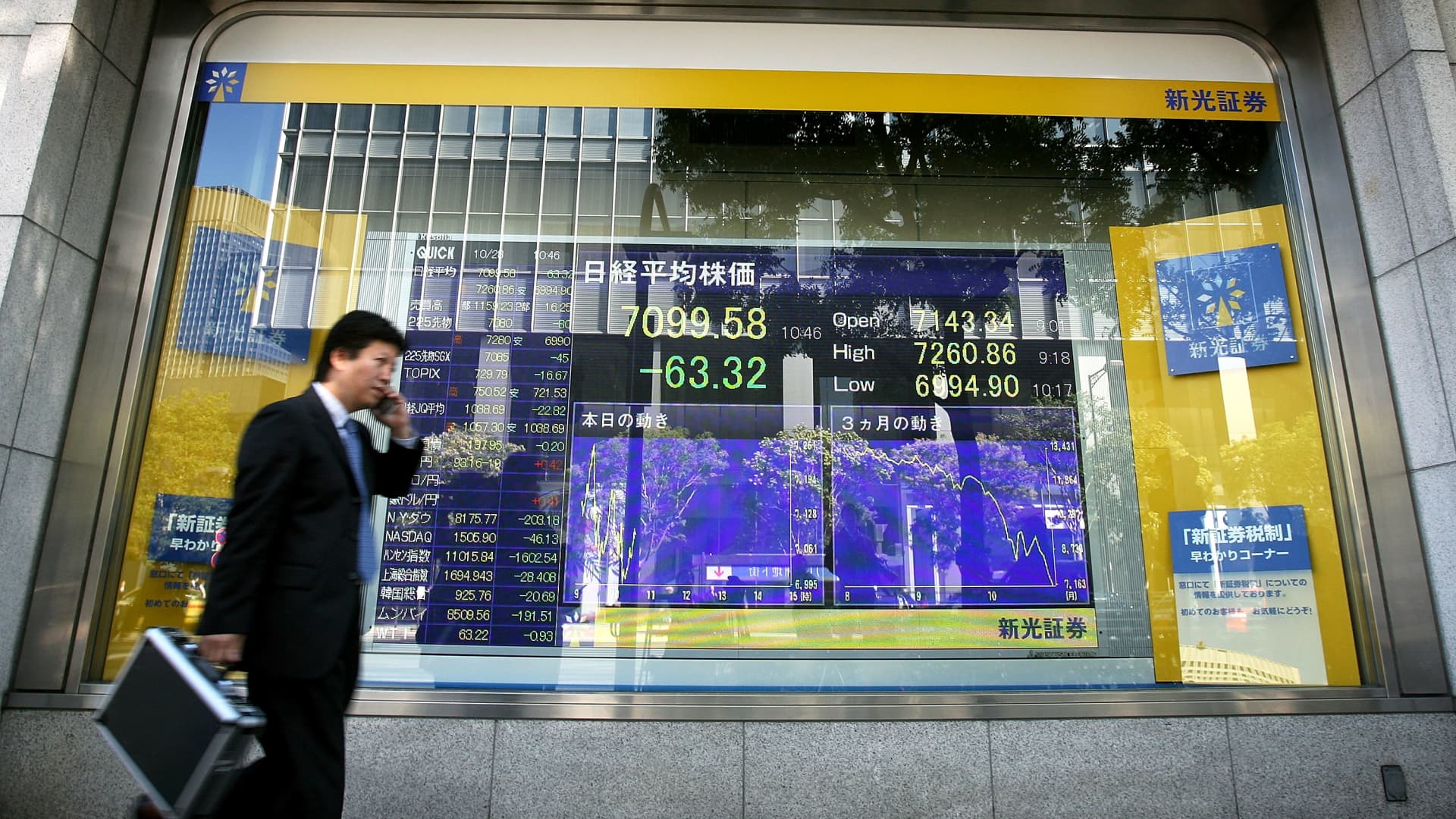
Not every price chart adheres to the perfect exemplars of chart analysis, but sometimes they do.
The daily Nikkei 225 chart is an almost perfect example of a Guppy Multiple Moving Average trend breakout pattern.
Technical indicators include those that are purely mathematical in construction. A moving average crossover is an example. The crossover is a mathematical function that can be used to identify a change in market sentiment.
Then there is chart pattern analysis. The very best of patterns capture the psychological behavior of participants and provides an effective means to set a price target that has a high probability of being achieved. An up-sloping triangle pattern shows a sloping trend line (participants getting more eager) and a resistance level (existing stock holders with consistent selling at this level). The combination usually leads to a breakout.
The Guppy Multiple Moving Average indicator combines those two approaches and uses the mathematical calculation to make inferences about the way traders and investors are thinking. When their thinking agrees, then there is a high probability of a trend change developing.
With the Nikkei, the long-term group of averages has compressed and turned upwards. That shows investors have stopped being sellers and have started to become more aggressive buyers. The compression shows agreement about price and value. The turning upwards confirms the earlier identical pattern exhibited by the short-term group of averages.
The short-term GMMA challenged and retreated from the long-term GMMA several times. The current breakout move is the short-term GMMA above the long-term GMMA. The short term GMMA repeats the behavior of traders — and they are very bullish.
The GMMA shows the fractal repeated behavior of the market participants across two major time frames. When there is agreement of behavior, it triggers a trend change.
The strength of the change is measured by the degree of separation in the long-term GMMA. The wider the separation, the stronger and more stable the trend.
Trend strength is confirmed with a steady separation between the long- and short-term groups of averages. Trend characteristics are shown by the degree of compression and expansion activity in the short-term GMMA. In very strong trending, the trading activity maintains a good separation in the short-term GMMA.
The Nikkei breakout is a classic GMMA breakout pattern. The initial upside target is the historical resistance level near 23,000. A pullback toward the lower edge of the short-term GMMA is a buying opportunity for a continuation of the uptrend.
Daryl Guppy is a trader and author of Trend Trading, The 36 Strategies of the Chinese for Financial Traders, which can be found at www.guppytraders.com. He is a regular guest on CNBC Asia Squawk Box. He is a speaker at trading conferences in China, Asia, Australia and Europe. He is a special consultant to AxiCorp.
For more insight from CNBC contributors, follow @CNBCopinion on Twitter.
24World Media does not take any responsibility of the information you see on this page. The content this page contains is from independent third-party content provider. If you have any concerns regarding the content, please free to write us here: contact@24worldmedia.com